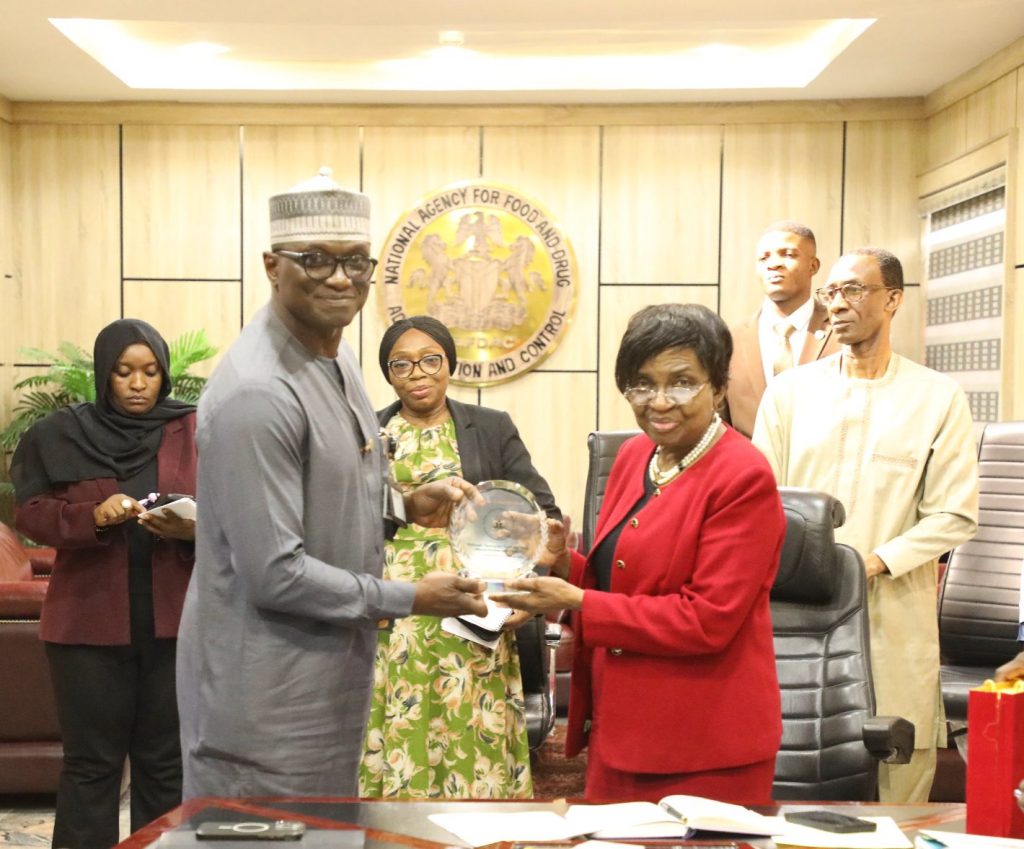- By Halimah Olamide
The Director-General of the National Agency for Food and Drug Administration and Control (NAFDAC) Prof. Moji Adeyeye, has said that the seven year period when officials of the agency were not allowed to operate at the nation’s ports contributed largely to the rise in terrorism, suicide bombing and madness among young persons.
Adeyeye said it was a free reign of drugs before NAFDAC was allowed back to the ports to stave off massive importation of drugs.
She stated this in Abuja when she hosted the Coordinator of the National Counter Terrorism Centre (NCTC).NCTC, Maj-Gen. Adamu Laka, in her office.
The delegation from NCTC, which is domiciled in the Office of the National Security Adviser, was in NAFDAC to request for personnel to assist in running its DNA laboratories.
Adeyeye also thanked the Office of the National Security Adviser for returning NAFDAC to the ports in 2018.
” So many things were going wrong. Anything bad was coming into Nigeria in terms of drugs, precursors, whatever.
” Tramadol was rampant in the country. At a point, I told my Ports Inspection Director whether they were targeting Nigeria to erase us from the map.
” Our young people were getting mad. Suicide bombing was at the peak.
” I said do we really know what we are doing? NAFDAC is in charge of drugs. We are in charge of chemicals and NAFDAC was removed from the ports for seven years.
” That is part of why terrorism became big in the country. I always refer to the Office of the National Security Adviser as one of the agencies that helped us to go back to the ports,” she said.
Adeyeye said a partnership between the two strategic agencies in the country was apt in safeguarding the lives of Nigerians.
She said NAFDAC was suitably positioned to fight drug counterfeiting, drug abuse, unwholesome food and unauthorised handling of chemicals fuelling terrorists operations and other criminal activities in the country.
According to her, NAFDAC, being a World Health Organisation Maturity Level 3 Regulatory Authority, has highly qualified experts and well equipped laboratories.
She, however, said the agency needed more personnel to cope with its enormous responsibilities.
” As a regulatory agency, we are supposed to have 12,000 staff but we are barely 2,000 in a country of more than 230 million.
” NAFDAC staff work round the clock. We are not just a civil service organisation but a regulatory body that is mandated to protect lives on a daily basis from food to drugs, to water, precursors and chemicals that can fall into the hands of the terrorists,” she said.
She commended the relentless efforts of the NCTC for supporting the return of NAFDAC to the ports.
Adeyeye pledged that NAFDAC would continue to work with the Office of the National Security Adviser.
She said: “ It has been a great relationship and it will continue to be better.
” We want to make the partnership stronger so that the counterfeiters will know that we have people watching our back.
” Without the support of the armed forces – the army, the police, Nigeria Security and Civil Defence Corps, Nigeria Customs Service and the Department of State Services- there is no way NAFDAC can exist in carrying out her operations. ”
Laka, on his part, described NAFDAC as an embodiment of knowledge in the area of science and research.
He pledged his continuous support to the agency in the areas of operations, research, laboratory testing and investigation.
Laka, however, sought NAFDAC’s support for the centre in the area of operationalisation of its laboratory equipment and analysis for it to achieve its objectives.
He equally thanked Adeyeye for releasing one of her staff to the centre and requested for more personnel from the agency.(NAN)


